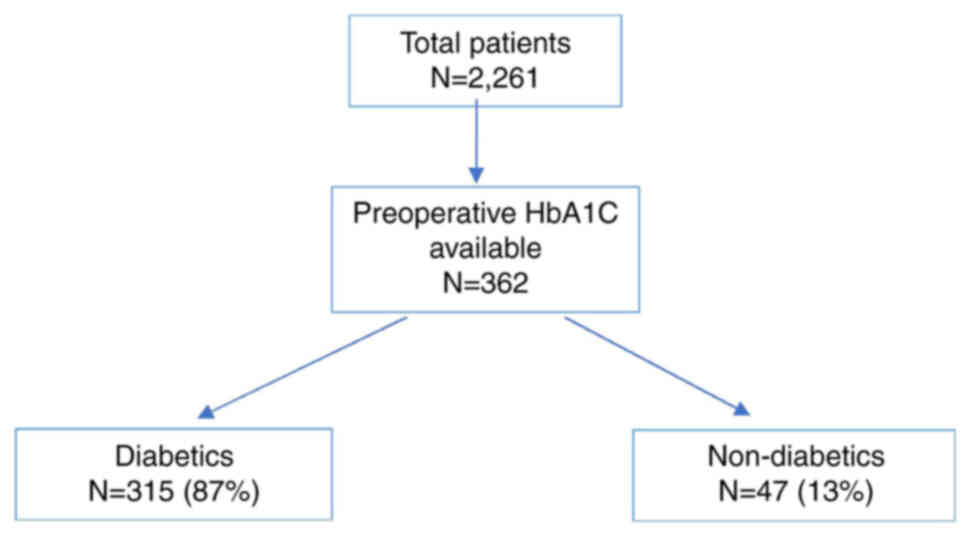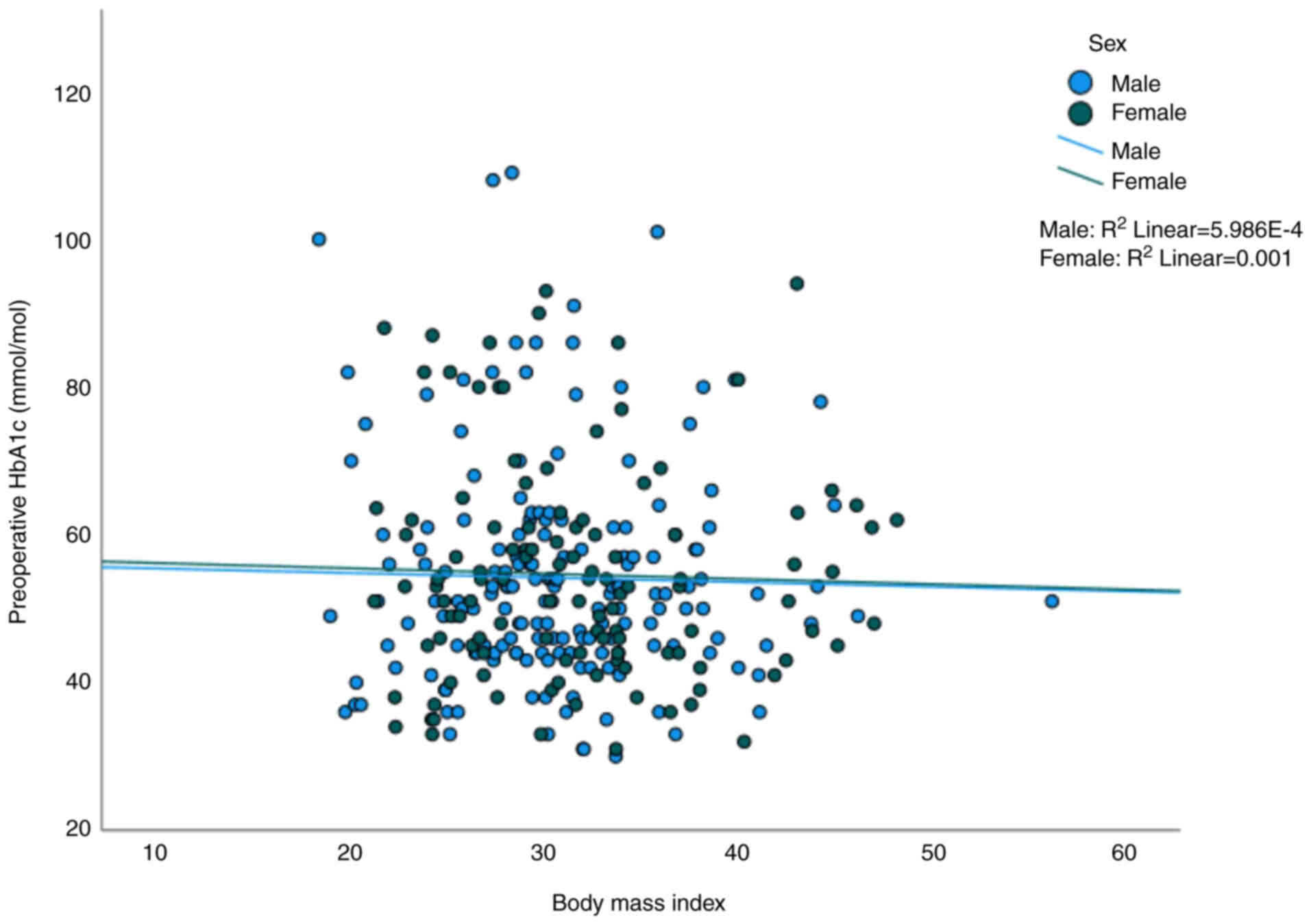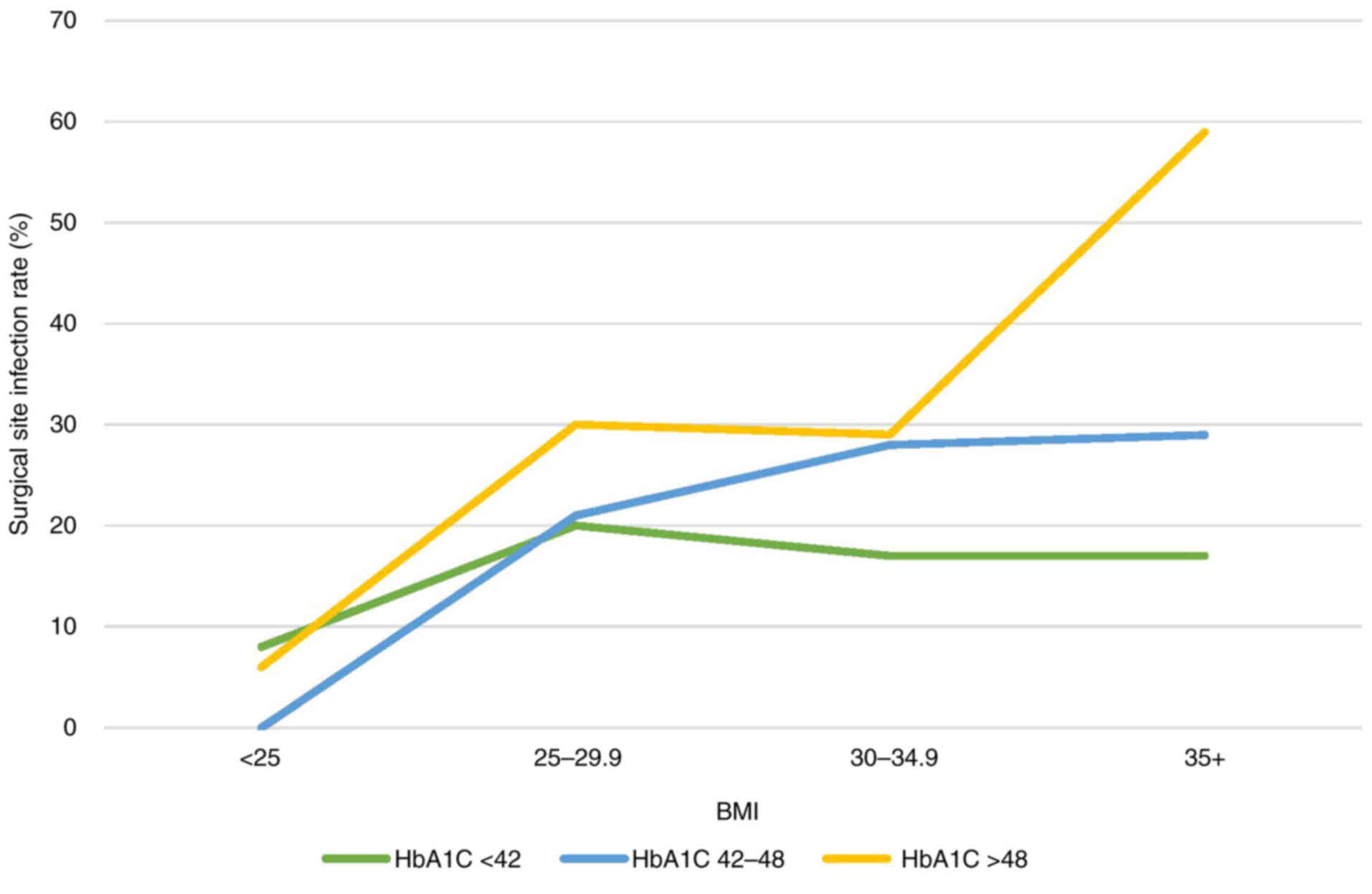|
1
|
Chakrabarti S, Peterson CY, Sriram D and
Mahipal A: Early stage colon cancer: Current treatment standards,
evolving paradigms, and future directions. World J Gastrointest
Oncol. 12:808–832. 2020. View Article : Google Scholar : PubMed/NCBI
|
|
2
|
Benson AB, Venook AP, Al-Hawary MM, Arain
MA, Chen YJ, Ciombor KK, Cohen S, Cooper HS, Deming D, Farkas L, et
al: Colon cancer, version 2.2021, NCCN clinical practice guidelines
in oncology. J Natl Compr Canc Netw. 19:329–359. 2021. View Article : Google Scholar : PubMed/NCBI
|
|
3
|
Cancer Research UK: Chemotherapy,
radiotherapy and surgical tumour resection in England. Journal;
2020
|
|
4
|
McSorley ST, Horgan PG and McMillan DC:
The impact of the type and severity of postoperative complications
on long-term outcomes following surgery for colorectal cancer: A
systematic review and meta-analysis. Crit Rev Oncol Hematol.
97:168–177. 2016. View Article : Google Scholar : PubMed/NCBI
|
|
5
|
Mills KT, Bellows CF, Hoffman AE, Kelly TN
and Gagliardi G: Diabetes mellitus and colorectal cancer prognosis:
A meta-analysis. Dis Colon Rectum. 56:1304–1319. 2013. View Article : Google Scholar : PubMed/NCBI
|
|
6
|
Becker DJ, Iyengar AD, Punekar SR, Kaakour
D, Griffin M, Nicholson J and Gold HT: Diabetes mellitus and
colorectal carcinoma outcomes: A meta-analysis. Int J Colorectal
Dis. 35:1989–1999. 2020. View Article : Google Scholar : PubMed/NCBI
|
|
7
|
Zhu B, Wu X, Wu B, Pei D, Zhang L and Wei
L: The relationship between diabetes and colorectal cancer
prognosis: A meta-analysis based on the cohort studies. PLoS One.
12:e01760682017. View Article : Google Scholar : PubMed/NCBI
|
|
8
|
IDF Diabetes Atlas, . International
Diabetes Federation. 9th edition. Brussels: 2019
|
|
9
|
Duan D, Kengne AP and Echouffo-Tcheugui
JB: Screening for diabetes and prediabetes. Endocrinol Metab Clin
North Am. 50:369–385. 2021. View Article : Google Scholar : PubMed/NCBI
|
|
10
|
World Health Organization, International
Diabetes Federation, . Definition and diagnosis of diabetes
mellitus and intermediate hyperglycaemia: Report of a WHO/IDF
consultation. World Health Organization; 2006
|
|
11
|
World Health Organisation, . Use of
glycated haemoglobin(HbA1c) in the diagnosis of diabetes mellitus:
Abbreviated Report of a WHO Consultation. World Health
Organization; 2011
|
|
12
|
McPherson RA and Pincus MR: Henry's
clinical diagnosis and management by laboratory methods. 22nd
edition. Klein MJ and Zhang Y: Elsevier; pp. 232–233. 2022
|
|
13
|
Public Health England, . Adult Obesity and
Type 2 Diabetes. 2014.
|
|
14
|
Federation ID, . IDF Diabetes Atlas 2021.
(10th edition). 2021.
|
|
15
|
West of Scotland Cancer Network (WoSCAN),
. West of Scotland Cancer Network. 2017.
|
|
16
|
Edge SB, Byrd DR, Compton CC, Fritz AG,
Greene FL and Trotti A: AJCC Cancer Staging Manual. 7th edition.
Springer; New York, NY: 2010
|
|
17
|
van der Sijp MP, Bastiaannet E, Mesker WE,
van der Geest LG, Breugom AJ, Steup WH, Marinelli AW, Tseng LN,
Tollenaar RA, van de Velde CJ and Dekker JW: Differences between
colon and rectal cancer in complications, short-term survival and
recurrences. Int J Colorectal Dis. 31:1683–1691. 2016. View Article : Google Scholar : PubMed/NCBI
|
|
18
|
Feeney G, Sehgal R, Sheehan M, Hogan A,
Regan M, Joyce M and Kerin M: Neoadjuvant radiotherapy for rectal
cancer management. World J Gastroenterol. 25:4850–4869. 2019.
View Article : Google Scholar : PubMed/NCBI
|
|
19
|
American Society of Anesthesiologists, .
ASA Physical Status Classification system. 2014.
|
|
20
|
Golder AM, McMillan DC, Park JH, Mansouri
D, Horgan PG and Roxburgh CS: The prognostic value of combined
measures of the systemic inflammatory response in patients with
colon cancer: An analysis of 1700 patients. Br J Cancer.
124:1828–1835. 2021. View Article : Google Scholar : PubMed/NCBI
|
|
21
|
Irving BA, Weltman JY, Brock DW, Davis CK,
Gaesser GA and Weltman A: NIH ImageJ and Slice-O-Matic computed
tomography imaging software to quantify soft tissue. Obesity
(Silver Spring). 15:370–376. 2007. View Article : Google Scholar : PubMed/NCBI
|
|
22
|
NHSScotland Caldicott Guardians, .
Principles Into Practice. 2010.
|
|
23
|
Gustafsson UO, Thorell A, Soop M,
Ljungqvist O and Nygren J: Haemoglobin A1c as a predictor of
postoperative hyperglycaemia and complications after major
colorectal surgery. Br J Surg. 96:1358–1364. 2009. View Article : Google Scholar : PubMed/NCBI
|
|
24
|
National Institute for Health, Care
Excellance, . Routine Preoperative Test for Elective Surgery.
2016.
|
|
25
|
Lobo DN, Gianotti L, Adiamah A, Barazzoni
R, Deutz NE, Dhatariya K, Greenhaff PL, Hiesmayr M, Hjort Jakobsen
D, Klek S, et al: Perioperative nutrition: Recommendations from the
ESPEN expert group. Clin Nutr. 39:3211–3227. 2020. View Article : Google Scholar : PubMed/NCBI
|
|
26
|
Kotagal M, Symons RG, Hirsch IB, Umpierrez
GE, Dellinger EP, Farrokhi ET and Flum DR; SCOAP-CERTAIN
Collaborative, : Perioperative hyperglycemia and risk of adverse
events among patients with and without diabetes. Ann Surg.
261:97–103. 2015. View Article : Google Scholar : PubMed/NCBI
|
|
27
|
Turina M, Miller FN, Tucker C and Polk HC:
Effects of hyperglycemia, hyperinsulinemia, and hyperosmolarity on
neutrophil apoptosis. Surg Infect (Larchmt). 7:111–121. 2006.
View Article : Google Scholar : PubMed/NCBI
|
|
28
|
Umpierrez GE, Smiley D, Jacobs S, Peng L,
Temponi A, Mulligan P, Umpierrez D, Newton C, Olson D and Rizzo M:
Randomized study of basal-bolus insulin therapy in the inpatient
management of patients with type 2 diabetes undergoing general
surgery (RABBIT 2 surgery). Diabetes Care. 34:256–261. 2011.
View Article : Google Scholar : PubMed/NCBI
|
|
29
|
Martin ET, Kaye KS, Knott C, Nguyen H,
Santarossa M, Evans R, Bertran E and Jaber L: Diabetes and risk of
surgical site infection: A systematic review and meta-analysis.
Infection Infect Control Hosp Epidemiol. 37:88–99. 2016. View Article : Google Scholar : PubMed/NCBI
|
|
30
|
Nugent EK, Hoff JT, Gao F, Massad LS, Case
A, Zighelboim I, Mutch DG and Thaker PH: Wound complications after
gynecologic cancer surgery. Gynecol Oncol. 121:347–352. 2011.
View Article : Google Scholar : PubMed/NCBI
|
|
31
|
Al-Niaimi AN, Ahmed M, Burish N,
Chackmakchy SA, Seo S, Rose S, Hartenbach E, Kushner DM, Safdar N,
Rice L and Connor J: Intensive postoperative glucose control
reduces the surgical site infection rates in gynecologic oncology
patients. Gynecol Oncol. 136:71–76. 2015. View Article : Google Scholar : PubMed/NCBI
|
|
32
|
O'Donnell RL, Angelopoulos G, Beirne JP,
Biliatis I, Bolton H, Bradbury M, Craig E, Gajjar K, Mackintosh ML,
MacNab W, et al: Impact of surgical site infection (SSI) following
gynaecological cancer surgery in the UK: A trainee-led multicentre
audit and service evaluation. BMJ Open. 9:e0248532019. View Article : Google Scholar : PubMed/NCBI
|
|
33
|
Gallagher M, Jones DJ and Bell-Syer SV:
Prophylactic antibiotics to prevent surgical site infection after
breast cancer surgery. Cochrane Database Syst Rev.
9:CD0053602019.PubMed/NCBI
|
|
34
|
Olsen MA, Lefta M, Dietz JR, Brandt KE,
Aft R, Matthews R, Mayfield J and Fraser VJ: Risk factors for
surgical site infection after major breast operation. J Am Coll
Surg. 207:326–335. 2008. View Article : Google Scholar : PubMed/NCBI
|
|
35
|
Serra-Aracil X, García-Domingo MI, Parés
D, Espin-Basany E, Biondo S, Guirao X, Orrego C and Sitges-Serra A:
Surgical site infection in elective operations for colorectal
cancer after the application of preventive measures. Arch Surg.
146:606–612. 2011. View Article : Google Scholar : PubMed/NCBI
|
|
36
|
Eto K, Urashima M, Kosuge M, Ohkuma M,
Noaki R, Neki K, Ito D, Takeda Y, Sugano H and Yanaga K:
Standardization of surgical procedures to reduce risk of
anastomotic leakage, reoperation, and surgical site infection in
colorectal cancer surgery: A retrospective cohort study of 1189
patients. Int J Colorectal Dis. 33:755–762. 2018. View Article : Google Scholar : PubMed/NCBI
|
|
37
|
Nelson RL, Gladman E and Barbateskovic M:
Antimicrobial prophylaxis for colorectal surgery. Cochrane Database
Syst Rev. May 9–2014.(Epub ahead of print). View Article : Google Scholar
|
|
38
|
Kulkarni N and Arulampalam T: Laparoscopic
surgery reduces the incidence of surgical site infections compared
to the open approach for colorectal procedures: A meta-analysis.
Tech Coloproctol. 24:1017–1024. 2020. View Article : Google Scholar : PubMed/NCBI
|
|
39
|
Xu Z, Qu H, Kanani G, Guo Z, Ren Y and
Chen X: Update on risk factors of surgical site infection in
colorectal cancer: A systematic review and meta-analysis. Int J
Colorectal Dis. 35:2147–2156. 2020. View Article : Google Scholar : PubMed/NCBI
|
|
40
|
Kamboj M, Childers T, Sugalski J,
Antonelli D, Bingener-Casey J, Cannon J, Cluff K, Davis KA,
Dellinger EP, Dowdy SC, et al: Risk of surgical site infection
(SSI) following colorectal resection is higher in patients with
disseminated cancer: An NCCN member cohort study. Infect Control
Hosp Epidemiol. 39:555–562. 2018. View Article : Google Scholar : PubMed/NCBI
|
|
41
|
Group SDD, . Scottish Diabetes Survey
2020. 2022.
|
|
42
|
Centre for Perioperative Care, . Guideline
for perioperative care for people with diabetes mellitus undergoing
elective and emergency surgery. 2021.
|
|
43
|
World Health Organization, . Global
guidelines for the prevention of surgical site infection. World
Health Organization; Geneva: 2018
|
|
44
|
O'Sullivan CJ, Hynes N, Mahendran B,
Andrews EJ, Avalos G, Tawfik S, Lowery A and Sultan S: Haemoglobin
A1c (HbA1C) in non-diabetic and diabetic vascular patients. Is
HbA1C an independent risk factor and predictor of adverse outcome?
Eur J Vasc Endovasc Surg. 32:188–197. 2006.PubMed/NCBI
|
|
45
|
Doyle SL, Bennett AM, Donohoe CL, Mongan
AM, Howard JM, Lithander FE, Pidgeon GP, Reynolds JV and Lysaght J:
Establishing computed tomography-defined visceral fat area
thresholds for use in obesity-related cancer research. Nutr Res.
33:171–179. 2013. View Article : Google Scholar : PubMed/NCBI
|
|
46
|
Martin L, Birdsell L, Macdonald N, Reiman
T, Clandinin MT, McCargar LJ, Murphy R, Ghosh S, Sawyer MB and
Baracos VE: Cancer cachexia in the age of obesity: Skeletal muscle
depletion is a powerful prognostic factor, independent of body mass
index. J Clin Oncol. 31:1539–1547. 2013. View Article : Google Scholar : PubMed/NCBI
|
|
47
|
Prado CMM, Lieffers JR, McCargar LJ,
Reiman T, Sawyer MB, Martin L and Baracos VE: Prevalence and
clinical implications of sarcopenic obesity in patients with solid
tumours of the respiratory and gastrointestinal tracts: A
population-based study. Lancet Oncol. 9:629–635. 2008. View Article : Google Scholar : PubMed/NCBI
|

















